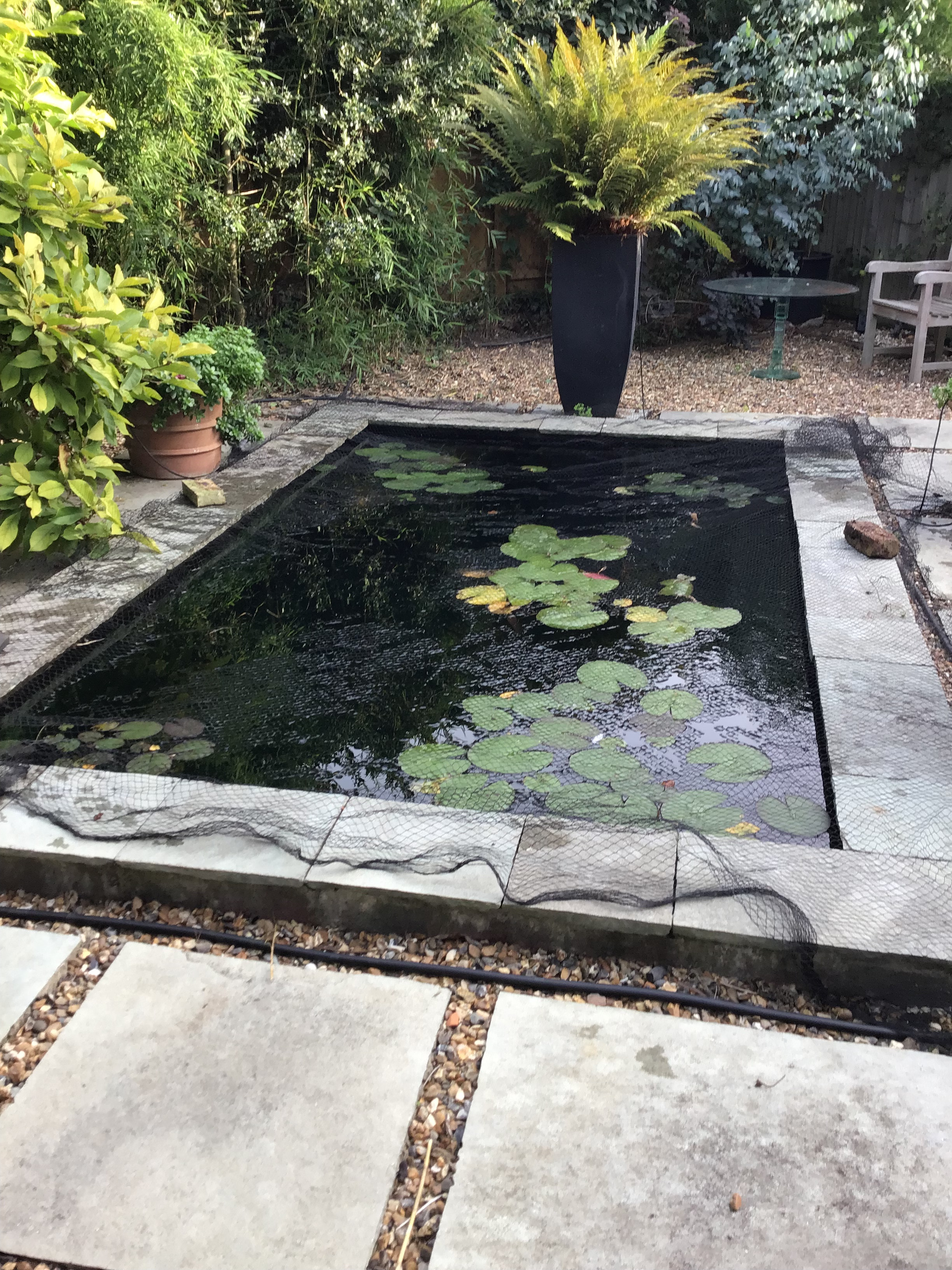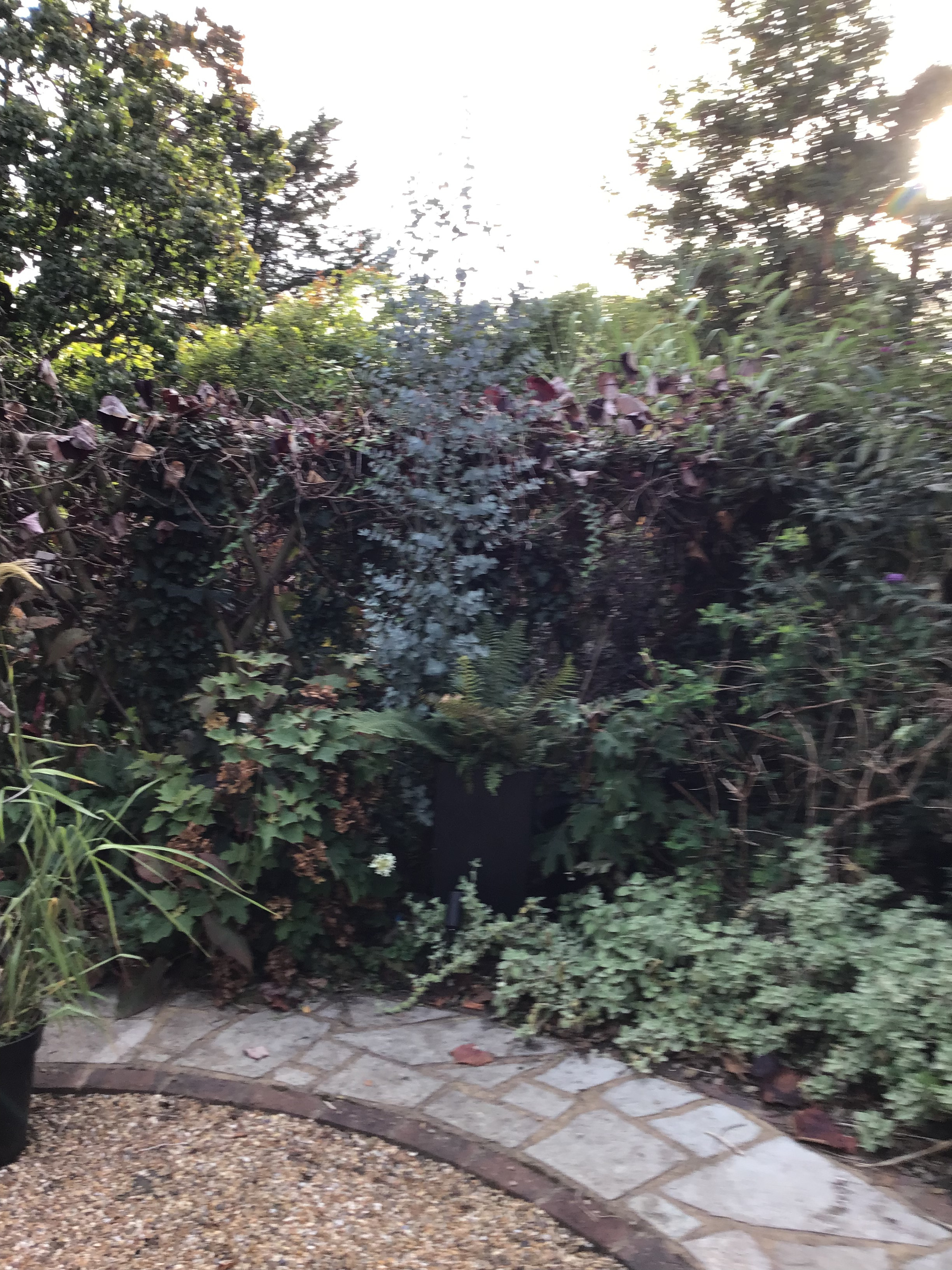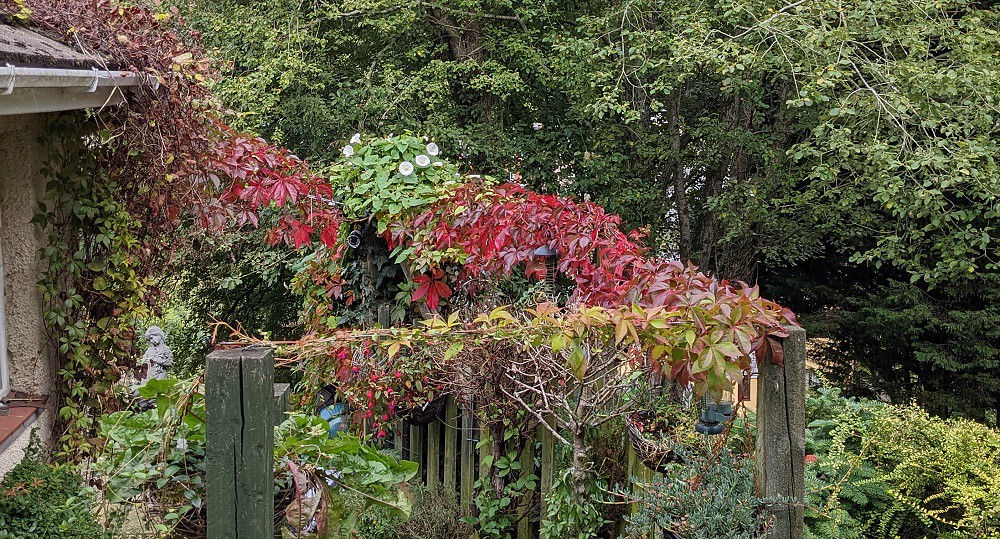Anything sold for food use has no agricultural residues so no chemicals. It's the law. Food Safety Act 1990 and all that, supporting regulations available on request. Compliance is very high, there are of course some pesticides popping up in food here and there, but it's rare. General compliance is good enough that you can ignore it and grow stuff from food crops if you want. Source? It's my job, and all that.Yes, non- organic seeds are cheaper. They may well have been prepared with the use of chemicals to prevent rot or sprouting. Not a good idea to consume sprouts or greens grown from these seeds. It is better to buy organic sprouting seed...not much difference in the cost. A small packet goes a long way and germinates for years if kept dry and in the dark.
I have saved 'heirloom' (open pollinated) seeds and stored them in brown paper bags with success.
You are using an out of date browser. It may not display this or other websites correctly.
You should upgrade or use an alternative browser.
You should upgrade or use an alternative browser.
Gardening
- Thread starter AudioAl
- Start date
eguth
pfm Member
I don't accept your assumptions.Anything sold for food use has no agricultural residues so no chemicals. It's the law. Food Safety Act 1990 and all that, supporting regulations available on request. Compliance is very high, there are of course some pesticides popping up in food here and there, but it's rare. General compliance is good enough that you can ignore it and grow stuff from food crops if you want. Source? It's my job, and all that.
Laws are broken frequently- especially when financial pressures are there.
They aren't assumptions, they're the results of independent testing for/by the Food Standards Agency. You can accept their results or not. You can look them up if you want, it's on public record.I don't accept your assumptions.
Laws are broken frequently- especially when financial pressures are there.
Mike Reed
pfm Member
First frost of the autumn here last night.
Ye gods! You're not that far north-west of me. Don't expect frost this early in Sept. and I think my body has become accustomed to higher than normal temp's. Wonder what the prognosis for this winter is; the last one was fairly mild, if too dry.
Scattered ground frosts were forecast across great swathes of England - tonight also, I believe. Air temperature will have been 5-6-7 in all probability.
I doubt it got colder than -1, but it must have been that for quite a while to get a thin covering of solid ice on the car.
Edit - just checked the greenhouse - +2C minimum over-night. At this time of year, sunny days, the greenhouse will have a degree or so of protection over-night as the floor and pots cool after getting thoroughly warm during the day. So outdoor air temperature must have been around freezing at some stage over-night.
I doubt it got colder than -1, but it must have been that for quite a while to get a thin covering of solid ice on the car.
Edit - just checked the greenhouse - +2C minimum over-night. At this time of year, sunny days, the greenhouse will have a degree or so of protection over-night as the floor and pots cool after getting thoroughly warm during the day. So outdoor air temperature must have been around freezing at some stage over-night.
Last edited:
I don't accept your assumptions.
Laws are broken frequently- especially when financial pressures are there.
There's no real need to break the laws on food safety at the production end in UK. We have a reasonable choice of chemicals and the pressure is on pesticide manufacturers to make sure any new products are safe. If not safe they don't get to market.
We're inspected every year and operators have to undertake CPD to keep their jobs.
We also have regular residue tests at independent labs done at random.
If anything illegal is found to have been done to a crop, even if that practice was legal last year, the crop is unsellable. When you're making +10 to -5% on turnover a write off is potentially ruinous.
You will never convince some consumers that food in general in the UK isn't full of Lord knows what, that UK beef isn't reared in feed lots, and processed foods are routinely adulterated, or even that the UK cannot economically produce certain fruit and veg' throughout the year so as to be self-sufficient (I can remember when even tomatoes and mushrooms were seasonal....).
The same people insist on buying bottled spring water that contains far more "chemicals" than does their tap-water.
The fact that anything labelled "organic" could be equally "dodgey" as any conventional product never seems to register.
One of the "benefits" of the www.
The same people insist on buying bottled spring water that contains far more "chemicals" than does their tap-water.
The fact that anything labelled "organic" could be equally "dodgey" as any conventional product never seems to register.
One of the "benefits" of the www.
mandryka
pfm Member
Today marks the official end of summer in my house. The pond has been netted - and look how well the lilies are doing, thanks to good advice here

Here’s my cunning plan for protecting the Echium. Two chairs at right angles, covered with fleece. That’ll make a real cold frame with the two brick walls. And I’ll bung something on the top when the nights are cold. So far I’ve only covered one, to see how well it weathers.

And finally, I rather like the look of this Eucalyptus gunii tower, which lasts from August to March - it gets cut right down in April. I want it there all the year, so I’m trying an experiment. I’ve just planted another E. gunii about 1m away. If it takes, the plan is to pollard them alternately every two years. I live in hope.

Note the Vitis coignetiae looks well and truly caput, so I’ve just planted another about 2m away. Fingers crossed.

Here’s my cunning plan for protecting the Echium. Two chairs at right angles, covered with fleece. That’ll make a real cold frame with the two brick walls. And I’ll bung something on the top when the nights are cold. So far I’ve only covered one, to see how well it weathers.

And finally, I rather like the look of this Eucalyptus gunii tower, which lasts from August to March - it gets cut right down in April. I want it there all the year, so I’m trying an experiment. I’ve just planted another E. gunii about 1m away. If it takes, the plan is to pollard them alternately every two years. I live in hope.

Note the Vitis coignetiae looks well and truly caput, so I’ve just planted another about 2m away. Fingers crossed.
One hell of a transformation with the lillies!!! Looks like that number could completely cover the water surface if kept fed and happy.
Keep an eye on the echium - hopefully it should be fine, but having it shielded all the time may lead to yellowing/rot/slugs etc. as it will stay relatively damp, assuming rain can reach.
Do you perpetually prune the E. gunii? They normally quickly make a reasonably shrubby, open structure (or a tree), and not that sort of pillar. I don't know what determines the production of juvenile and adult leaves, but I have certainly seen adult leaves on plants only a few feet tall. Presumably determined by age of the parent woody growth????? The juvenile form is very common as a florists' plant; I would assume that it is produced by coppicing?????????
They grow like cress from seed if you want to experiment - they'll make 12 inches plus (plus) in a year from early-sown seed.
Keep an eye on the echium - hopefully it should be fine, but having it shielded all the time may lead to yellowing/rot/slugs etc. as it will stay relatively damp, assuming rain can reach.
Do you perpetually prune the E. gunii? They normally quickly make a reasonably shrubby, open structure (or a tree), and not that sort of pillar. I don't know what determines the production of juvenile and adult leaves, but I have certainly seen adult leaves on plants only a few feet tall. Presumably determined by age of the parent woody growth????? The juvenile form is very common as a florists' plant; I would assume that it is produced by coppicing?????????
They grow like cress from seed if you want to experiment - they'll make 12 inches plus (plus) in a year from early-sown seed.
mandryka
pfm Member
If you cut E. gunii right down to the ground it makes a multi-stemmed shrub, if you leave some main stem it makes a pillar. I cut mine down to about 12" from the ground every April. I never need to prune them, keep them tidy, in the year, they form a naturally elegant and self contained structure. I'll be really pleased if my idea of growing them in pairs and cutting them down alternately every two years works. It's interesting what you say about seed, because if you can grow them in pairs and coppice every two years, and you can produce them cheaply, they could make an evergreen hedge.
I keep an eye on the echium at least three times a day.
I keep an eye on the echium at least three times a day.
TalYWaun
pfm Member
Not really gardening, more just watching the garden do its thing. Years ago I placed a steel wire between the top of the posts for Christmas lights and at the beginning of this year the creeper hadn’t got past the white flowers. This year it has grown many strands across the 4.5 meters of wire, (which I think is impressive) and it’s also heading for the extension roof to join with the clematis.
The creeper started at the bottom of the garden and when that turns red indicates that summer is over. At the bottom of the garden it’s still mostly green but the red is slowly spreading down the garden.
 Creeper by Mark Edwards, on Flickr
Creeper by Mark Edwards, on Flickr
The creeper started at the bottom of the garden and when that turns red indicates that summer is over. At the bottom of the garden it’s still mostly green but the red is slowly spreading down the garden.
 Creeper by Mark Edwards, on Flickr
Creeper by Mark Edwards, on Flickrit’s also heading for the extension roof to join with the clematis.
That looks like Virginia creeper - if it is, you may well regeret planting it in the none too distant future.
Virginia creeper will completely cover almost any building ever built. Any growth on any roof also leads to leaks as water cannot drain properly due to fallen leaves and general build-up of debris within the stems of the climber.
The white flowers appear to be bindweed/convolvulus/balbine - very pretty but a nightmare in any garden.
You may know already, or not be too concerned, but climbers anywhere near the eaves will act as a rodent highway from around now, as the weather deteriorates and cools.
TalYWaun
pfm Member
That looks like Virginia creeper - if it is, you may well regeret planting it in the none too distant future.
LOL, I didn’t plant it, it just appeared about 15 year ago. I understand that they are invasive weeds, but as they cover the rebar sheets (dog proof fence) between my property and the ‘wasteland’ next to my property I’m happy to let them grow (although a major cutback, on my side, is planned soon). I’ve enjoyed watching the progress of the Virginia Creeper this year and it will give the birds more perches when I start feeding them this winter, as well as a greater surface area for this year’s Christmas lights. As for the guttering, I keep an eye on it, as my house is surrounded by trees and they all drain into my fish pond and any blockage used to result in water pouring down the walls before I inserted rolled up chicken wire into them to keep the leaves from blocking the downpipes. As for the bindweed, yes, it’s a problem, but nipping off any strands that get too invasive seems to keep it under control. At least, it’s not knotweed.
Sue Pertwee-Tyr
Accuphase all the way down
We tend to rake them into piles, then run the mower over the piles, and bag up the contents of the grassbox for leaf mould.
Use a leaf blower to get them collected into a corner somewhere in the garden, then use two (ply)wood(en) or thick card "paddles" to get them bagged. FAR quicker than a vac'.
If you have the room, out of the way, the best thing is to ram them into a builders' big-bag and leave well alone.
Shredders make iffy jobs of shredding them (which isn't needed for leaf-mould) - a lawn-mower as already suggested, is hard to beat.
Leaf-mould takes place at ambient temperature (cool), over months or longer and is driven by fungi. Anything else is composted leaves.
Whole leaves, especially awkward ones that take ages to breakdown - beech, oak.... - make an excellent soild conditioner dug straight into the soil.
If you have the room, out of the way, the best thing is to ram them into a builders' big-bag and leave well alone.
Shredders make iffy jobs of shredding them (which isn't needed for leaf-mould) - a lawn-mower as already suggested, is hard to beat.
Leaf-mould takes place at ambient temperature (cool), over months or longer and is driven by fungi. Anything else is composted leaves.
Whole leaves, especially awkward ones that take ages to breakdown - beech, oak.... - make an excellent soild conditioner dug straight into the soil.
mandryka
pfm Member
Anyone have a Leaf vac / mulcher that they use and can reccomend ?
I'm about to have a huge amount of leaves from 4 massive trees dropped on my gardens
A pain in the ar-e last year clearing them up .
I would say only get one if you have children -- kids love them. If you insist on getting one, get the lightest. Get a blower rather than a vac. None of them are very effective if the leaves are wet. IMO a lawn rake is the best solution.
I just gave mine away actually, to a neighbour. It was next to useless because of the weight -- I stupidly bought the most powerful I could find. But I learned that a rake is fine. Best if it's all plastic because you can leave it outside all the time.
Apart from a rake, a tool to pick up the leaves is essential. I have one where you don't have to bend down at all -- like two paddles on the pincer.
ORIENTOOLS Garden Leaf Rake, Adjustable Lightweight Steel Handle, Comfortable Grip Handle, Plastic Head,Poly Shrub Rake,26 Tines,110 to 168cm (Silver Handle) : Amazon.co.uk: Garden & Outdoors
Coopers of Stortford Long Handled Leaf Grabbers with Soft Grip Foam Handles H86.5cm : Amazon.co.uk: Garden & Outdoors
This site contains affiliate links for which pink fish media may be compensated.
Anyone have a Leaf vac / mulcher that they use and can reccomend ?
I'm about to have a huge amount of leaves from 4 massive trees dropped on my gardens
A pain in the ar-e last year clearing them up .
We've got an electric Stihl, been good and reliable for 5 years now. If you're going electric look at all the range as the batteries and charger cost more than the implement.
I send all leaves to mulch by mowing the drive at max height, luckily there's a hedge both sides.

